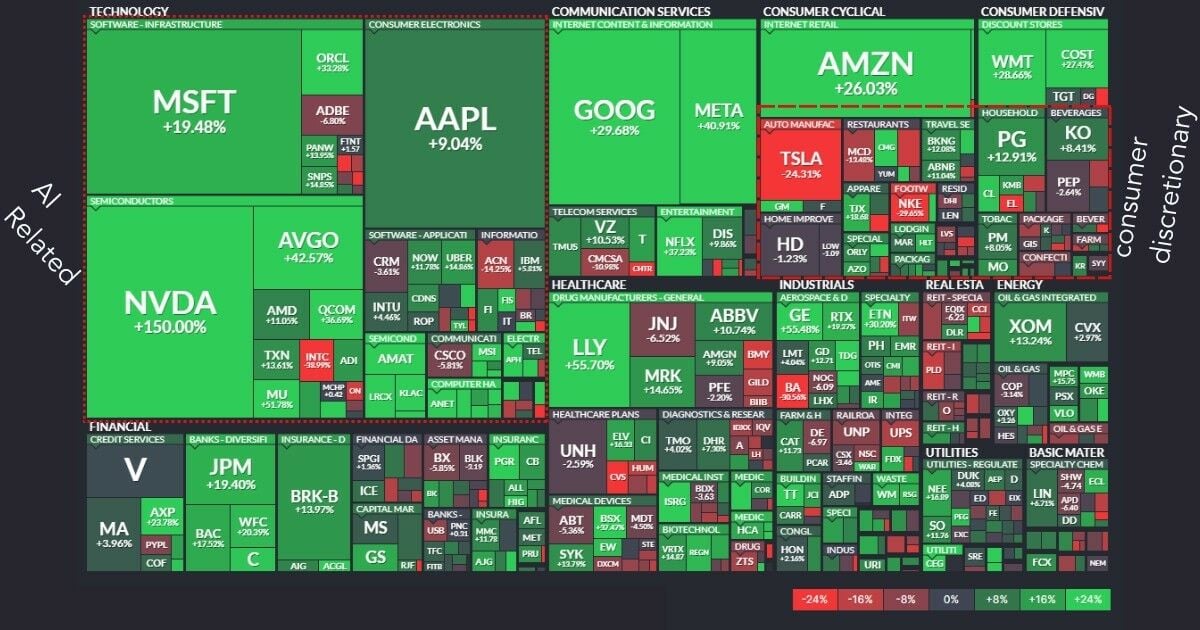Tenzing Pacific Services predicts market’s ‘positive momentum’ to continue

Tenzing Pacific Services is anticipating positive stock market momentum to carry through to the end of 2024 despite volatility and share performance dispersion.
Tenzing Pacific Services, a health, life, and business insurance and investment company, saw June as a mixed bag when it came to growth.
This is in large part due to the market’s performance not necessarily correlating with the performance of a large number of stocks.
“The first half of 2024 has seen the levels of dispersion be at the highest ever,” Tenzing Pacific Services Managing Director Craig McAvinue writes.
The S&P 500 throughout June only moved more than 2% in a day once, which would usually indicate market volatility to be very low.
However, more analysis at the share price level revealed large gains are only being made in some industries, while 40% of companies in the S&P 500 are 10% higher than their year high.
This disparity creates the illusion of market stability and reliable growth potential, but unfortunately, many portfolios may have fallen behind the overall market.
Market volatility and disparity
Artificial Intelligence companies are continuing to see massive growth, with businesses such as Microsoft and Nvidia continuing to experience huge share price increases.
With this growth, however, there is still the potential for a sell-off to occur in this sector, which would potentially lead to a market adjustment despite positive outlooks.
In the consumer discretionary sector, McAvinue has observed large losses, even with industry leaders like Diageo and LVMH.
McAvinue attributes this activity to be tied to the slowing of inflation in the US, as well as trends and an influx of less pragmatic investing behaviours.

Looking forward
McAvinue has reminded prospective investors of a key historical trend which may dictate the rest of 2024.
“If the first half of the year is positive, there is a higher probability that the second half will also be positive, though this is not guaranteed,” said McAvinue.
“When the S&P 500 has a positive first half, the second half is also positive 75% of the time.”
In the past 20 years, the only exceptions to this rule have been 2007, 2010, 2011, 2015, and 2018.
McAvinue recommends that despite positive growth indicators investors should lock in their current gains and look to balance their portfolios, mostly with non-stock market options.
“Commodities, property, private equity and even currency fall into this category of non-correlation,” writes McAvinue.
Even with the USD outperforming other currencies, the Japanese Yen is the lowest it’s been in 35 years.
“As mentioned earlier, the Japanese Yen being at a 35-year low could be seen as a great buying opportunity.”
With geopolitical issues external to the market and global elections creating uncertainty, markets may respond in unpredictable ways which present both opportunities and risks.
McAvinue recommends buying good companies and preparing for the long haul, to make current market levels and share prices irrelevant for the long term.
Latest Thailand News
Follow The Thaiger on Google News:


























